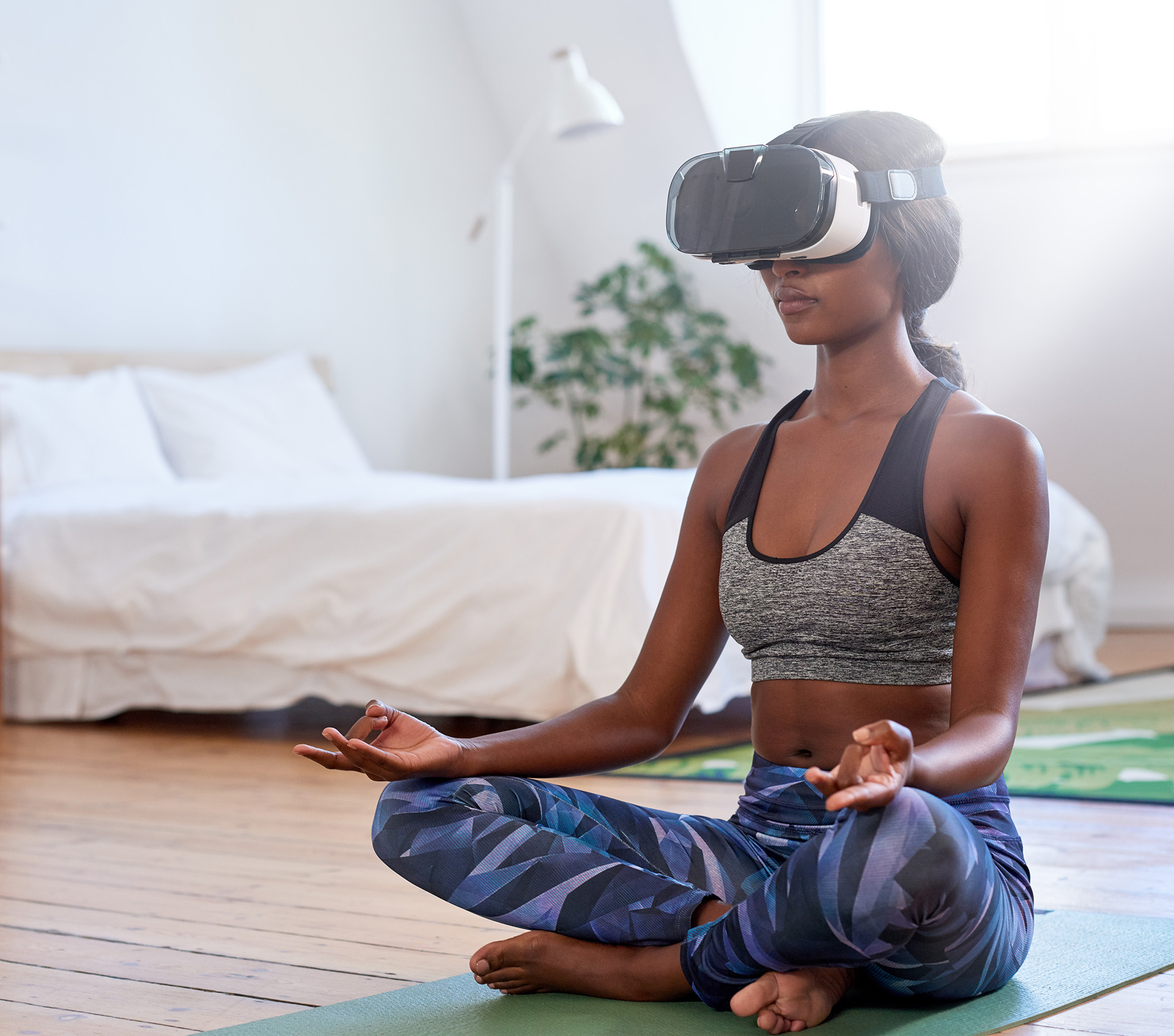
VR Mental Health Benefits this Winter
Since the early days of Virtual Reality’s rebirth in 2016, we’ve known that immersive experiences have the potential to evoke and influence emotions. So, it seems to follow naturally that VR Mental Health apps have the potential to be uniquely effective. We’ve watched this genre of content proliferate over the last few years. And now those tools have become important on a whole new level.
This winter, wherever you live, you’re likely being asked to stay at home and to limit your social interactions. All while many people are more burned out than at any other point in their lives. Winter is the season when mental health needs the most attention. So, if you expect your state of mind to be vulnerable as the days get darker and the pandemic worsens, keep reading for some tips on using VR to keep your mind healthy.
Our Top 5 VR Mental Health Picks
It can sound hollow to talk about using lockdown time to ‘work on yourself’ or pursue self-improvement activities, particularly when you feel like you’re just getting through one day at a time. But if you’re in that dark place, using safe and effective solutions could make the difference between re-emerging as a healthy person – versus someone suffering physical or mental conditions that might have been prevented.
Whether you take one of our recommendations or keep searching for the tool that’s right for you, we hope you’ll find VR content that helps combat whatever depression or anxiety symptoms come your way this winter.
Iceland-based developer Breach VR brings you gorgeous 360-degree videos combined with amazing music and guided meditations. Six sessions are titled Breath, Focus, Move, Let Go, Calm, and Restore. Anyone wanting to travel to Iceland can enjoy this alternative in the meantime.
Guided meditation on a beautiful beach, this content comes complete with authentic ocean sounds and realistic digitally rendered scenery. Simple and effective, it’s free to use via STEAM.
3. Rendever
Seniors are the group most vulnerable to both Covid-19 and mental health issues. So, we are delighted to see a product that specifically addresses the needs of this demographic. Rendever can both customize content and facilitate connections. Users can enjoy a walk through their childhood home or any other special place from the past. Or they can opt for bucket list experiences like skydiving or swimming with dolphins. And there are opportunities to make new online friends.
Rendever will be able to offer lasting benefits to seniors, beyond coping with the current pandemic, as they often have to grapple with mobility limitations and chronic loneliness.
4. Limbix
Spark is intended to be a multi-week cognitive behavioural therapy program that includes value-based activities that generate feelings of pleasure or mastery. Spark is still in the trial phase, but Limbix is actively recruiting teens to participate in making this product as effective and user-friendly as possible.
5. VRChat
This app does not target mental health, per say, but we think it goes without saying that interpersonal connections increase happiness and personal wellbeing. Users can join through STEAM, Oculus, or Viveport accounts. And we love that this creates a blended space of people both immersed and traditionally online. Any given community can accommodate people whether they have access to VR tech or not.
General Benefits of Using VR at Home
When you can’t (or at least shouldn’t) leave your house, why not consider something that approximates the feeling? Working from home, self-isolating, or simply trying to do the right thing and stay away from others takes a toll that adds up quickly. VR users often report that an extended immersive experience, particularly one shared remotely with other people, can deliver a sense of having gotten out into the world.
One of the most prominent effects of the Covid-19 pandemic is the removal our ability to interact with communities. We don’t get to move freely and meet with people comfortably. Even if you do go out, there is an underlying tension to manage related to social distancing and sanitation.
Our spaces have been altered, even when we do get to be physically present. But not in immersive worlds. Engaging in VR means that you can do something ridiculously simple like walk through a park without worrying about regulating your space or encountering someone who may be sick.
Mental Health and Employees
Most of the people being asked to work at home are knowledge workers, corporate employees, office staff, and anyone who already did most of their work with a computer and a phone. Yet these white-collar workplaces are sometimes the spaces most prone to ignoring the human element in their workforce.
Traditional corporate workplaces often discourage discussions about how individual employees are feeling. Some managers treat their teams as though work time is for work and anything else is wasting money. The idea of discussing emotions or allowing conversations about how mental health is influencing professional performance can be viewed as soft or a poor use of paid hours.
We think it’s time for a new attitude and VR Mental Health apps can be a part of this conversation. If you believe that happy employees and teams that bond can produce better work, it’s worth your time to learn about tech that can achieve those goals.
VR Connections for Mental Health
One of the reasons we included VRChat in our list of mental health apps is that we know how detrimental isolation can be to individual wellness. We see pain caused by loneliness occurring across a broad range of demographics. Under normal conditions, isolation can affect anyone from seniors in care to students or young professionals who relocate to learn or work. In lockdown conditions, anyone deemed “non-essential” can be called upon to stay home and stay alone.
If VR can help make it easier to get through isolation, be it during a pandemic or a phase of life, we want to see more solutions aimed at this problem. Over time, we know the body of content and hardware products available to the public will improve to the point that anyone who needs this connection will be able to access it on some level.
VR Fitness Options at Home
We often talk about how great a tool VR can be for meeting fitness goals. So, it’s worth mentioning here that physical fitness and mental health are connected. And an investment in VR for the purposes of improving mental wellness can be applied to fitness too.
Fitness content for most VR platforms ranges from physically demanding games like Beat Saber to immersive personal training that serves as a replacement for a local gym. We recommend looking for opportunities to crossover fitness and social time, like connecting with a friend for a physically interactive dance or yoga session.
VR can also be paired with a stationary bike or treadmill. And performance tracking is built right in for many products, allowing you to set goals and experience the satisfaction of meeting or exceeding them.
VR Health & Wellness Advocates
At Stambol, we know there are no one-size-fits-all solutions when it comes to mental health. But we want to share as much information as possible to help our readers connect to the literal wealth of resources during the coming pandemic winter.
Are you managing a team that is working from home? Are you looking for solutions that merge workplace practicality and personal wellness? Reach out to our experts and learn how your group can benefit from VR products. Our team can build custom content that addresses your unique needs.
Feature Image Credit: Daxiao Productions / Adobe Stock


